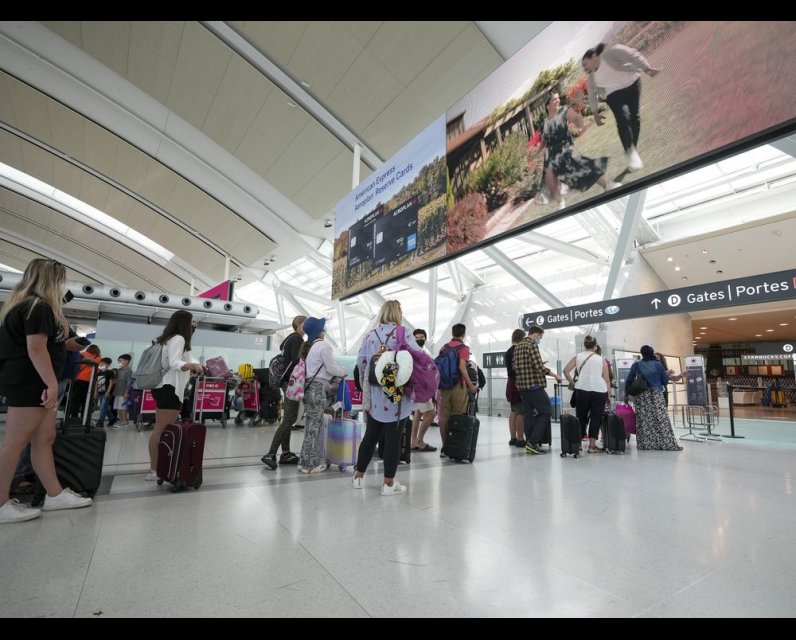Canadian snowbirds turning their backs on U.S. as a winter destination: poll

There could be drastically fewer retired Canadians flocking south to southern U.S. states like Florida and Arizona to escape the winter this year, according to a new survey.
In its 2025 winter smart travellers survey insights, the Travel Health Insurance Association (THIA) of Canada found that people age 61 and over — typically seen as the “snowbird” generation due to their long-term trips south — lead the way in boycotting travel to the U.S. this winter.
The survey, conducted by The Harris Poll in late September, asked respondents how likely they were to travel to the U.S. between October of this year and March 2026, typically Canada’s coldest months.
Just over a quarter of respondents (26 per cent) said such a trip was likely, a decline of 37 per cent over the percentage of people who said they’d go in the winter of 2024-25 (41 per cent).
Across age groups, the drop was most precipitous among Boomers, with only 10 per cent anticipating a trip to the U.S. in the months ahead, a 66 per cent plunge over the share of people who said they would have last year (31 per cent).
“Meanwhile, younger Canadians are keeping the tradition alive,” The Harris Poll wrote, noting that 45 per cent of those aged 18-34 — including 44 per cent of Generation Z — “still plan to travel to the U.S., down only 18 per cent, showcasing a significant generational divide.”
In April, the U.S. Citizenship and Immigration Services (USCIS) introduced the Alien Registration Form , which requires most non-citizens staying in the U.S. for 30 days or longer to register their presence and provide a photograph and fingerprints. Anyone crossing via land border would also be required to pay a $30 fee for a separate arrival-and-departure record.
Last week, the Department of Homeland Security announced new regulations requiring all non-residents, including Canadians visiting for any amount of time, to be photographed when entering the U.S . for facial recognition purposes.
When they come into effect on Dec. 26, the new rules will apply to minors under 14 and seniors over 79, groups that were previously exempt from some biometric requirements, and could also require the submission of other biometrics, such as fingerprints or DNA.
The THIA survey also found that Canadians’ winter-destination appetites are changing and veering away from their nearest neighbour.
Of the 53 per cent who plan to leave their home province this winter, only 12 per cent said their primary destination would be in the U.S., down by 23 per cent year over year from the 2024-25 proportion.
Instead, an increasing number of people — 11 per cent more than the previous year — say they’re first headed to another Canadian province, and more still (27 per cent) listed the Caribbean.
“It’s clear that Canadians’ primary vacation spots during the winter months are in flux,” the pollster wrote.
As for those committed to a U.S. trip in the next six months, 13 per cent are doing so for leisurely reasons, while another 13 per cent are visiting family or friends. Escaping the cold, taking advantage of cheap destinations and ease of travel to the U.S. came in at seven per cent, respectively.
Asked what potential barriers factor into their decision about travelling at this time of year, without being prompted, 40 per cent of respondents said political tensions with the U.S., compared to 24 per cent who cited global uncertainties.
Cost was the top barrier at 41 per cent, and 29 per cent listed exchange rates. Rounding out the list were personal safety (20 per cent) and potential travel disruptions (13 per cent).
The random survey was conducted Sept. 24-26 and has an estimated margin of error for the poll was plus/minus 2.5 per cent, 19 times out of 20.
Our website is the place for the latest breaking news, exclusive scoops, longreads and provocative commentary. Please bookmark nationalpost.com and sign up for our daily newsletter, Posted, here.

Comments
Be the first to comment